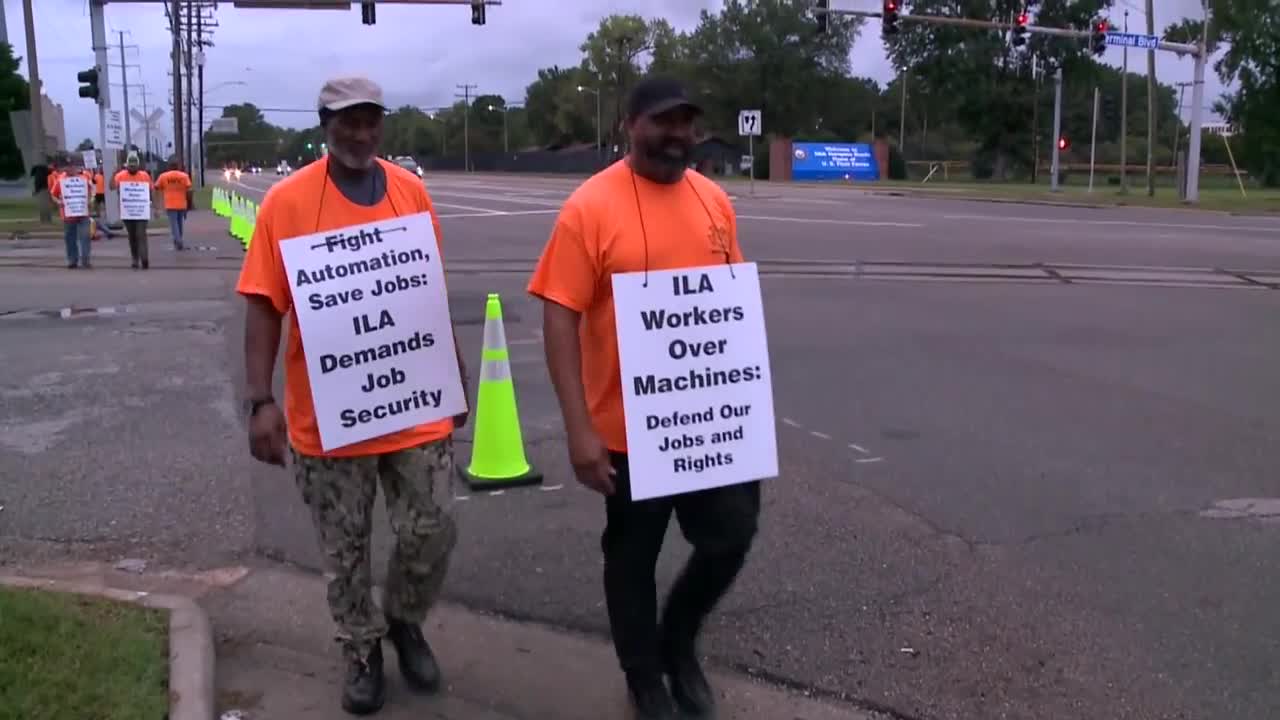NORFOLK, Va. — International Longshoremen’s Association members in Hampton Roads were off the picket line Friday and heading back to work.
However, their fight isn't over.
The ILA union has been pushing for higher wages and restrictions on how automation is used at ports.
Watch: Economist offers perspective on possible longshoremen strike
“Automation is a necessary evil," said Dr. Kuntal Bhattacharyya.
Bhattacharyya is a professor at Old Dominion University and the director of ODU’s Supply Chain, Logistics, and Maritime Operations School. He said there needs to be a balance between humans and machines, which he calls a “cobot environment."
Watch: Truck drivers, companies fear possible ILA strike; union says it's 'fighting for respect'
“Research has shown that cobot offers the maximum return on investment, both in terms of increased efficiencies as well as retraining the human piece of the equation," Bhattacharyya explained.
A report released in March by the U.S. Government Accountability Office says U.S. and international port stakeholders agree automation can improve worker safety and reduce emissions. However, the effects on workforce, security, and performance are mixed.
Watch: ILA members picket outside Port of Virginia as union strike begins
The ILA went on strike on Oct. 1 after failing to agree on a new contract with the United States Maritime Alliance. The strike shut down ports from Maine to Texas, including the Port of Virginia.
The union announced Thursday night an agreement had been reached on wages and the current contract will be extended through Jan. 15, 2025, so the two sides can continue to negotiate over automation. The Maritime Alliance also released a statement, acknowledging the tentative agreement.
Watch: Experts advise people 'not to panic' as shelves go bare in Virginia amid port strike
The Port of Virginia was back open Friday.
According to the Port's website, reopening after the strike was expected to take about 24 hours. Ships were scheduled to start coming in at 7 p.m. Friday. Trucks were scheduled to start coming in on Saturday.
“We have to accept the fact that the change doesn’t replace us. It requires us to be up-skilled to meet the needs of the change. So, if there is a machine coming in I need to know how to operate that machine. That’s a new skill for me and that actually allows me to get a pay raise, too," Bhattacharyya said. "We have to understand that relationship first and foremost. With that mindset, it’s much easier, I believe, to accept automation.”






